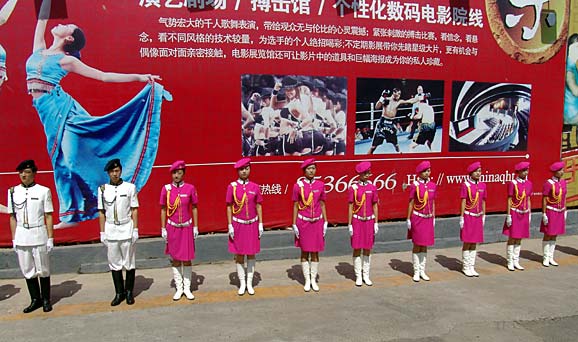
Xian - Day 2

Our first stop of the day was to the Wild Goose Pagoda. We saw this honor
guard as we approached the pagoda.
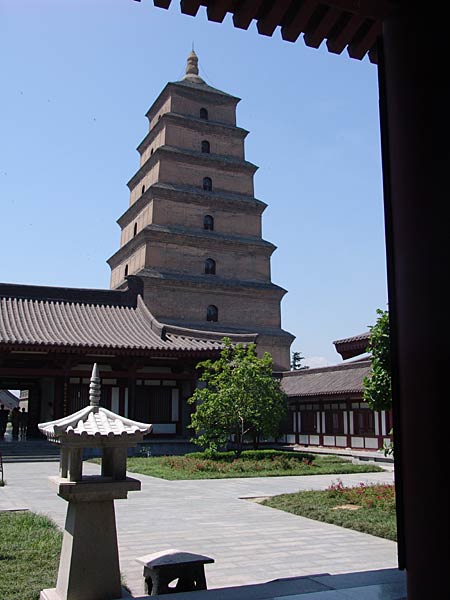
The Wild Goose Pagoda; it was constructed in 652 A.D. The pagoda is being renovated, so we could not go inside.
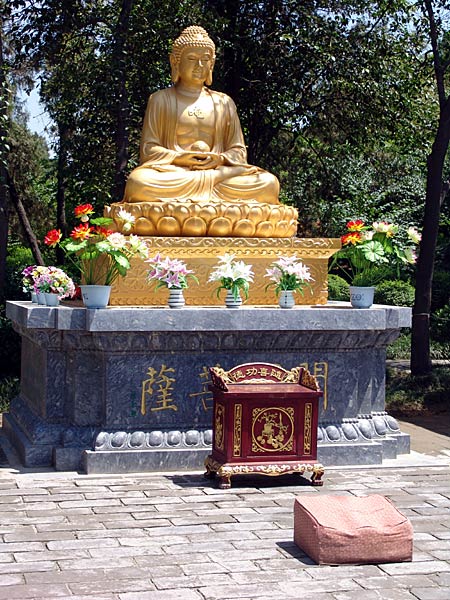
One of the Buddhas in a garden next to the pagoda. People came here to pray.
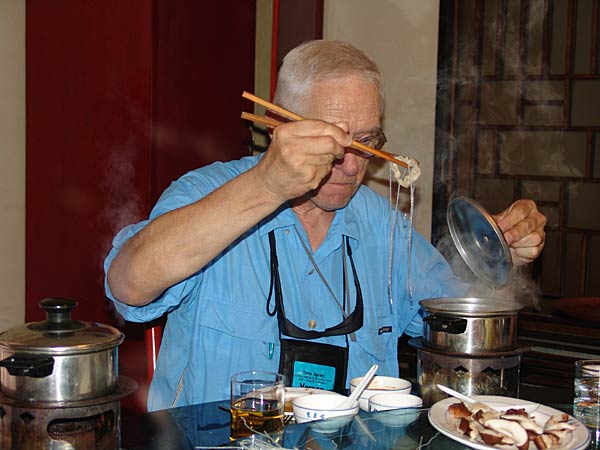
For lunch we had Mongolian fire pot. Everyone got their own pot, in which
they were expected to cook their food. Vern seems rather serious about the whole
thing.
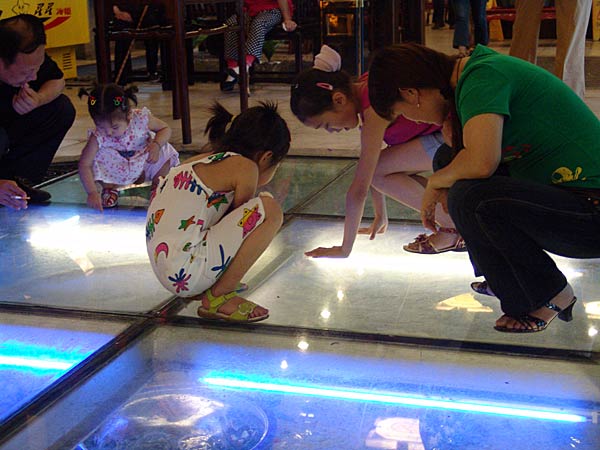
The restaurant where we had lunch had a gold fish pond covered with glass
that you could walk on. It was a great hit with the children.
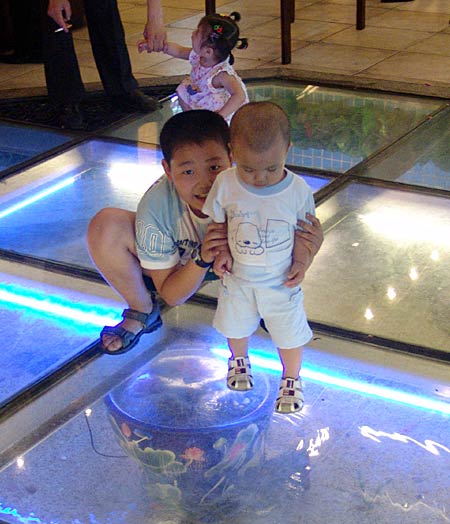
Despite the efforts of his older brother, this little tyke was more
interested in the fish below than in posing for my camera.
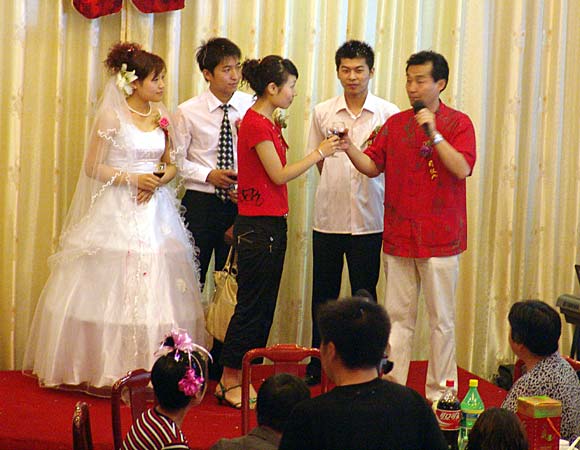
The restaurant was hosting a wedding celebration while we were there. Note
the bride's wedding gown; it seems to be very western.
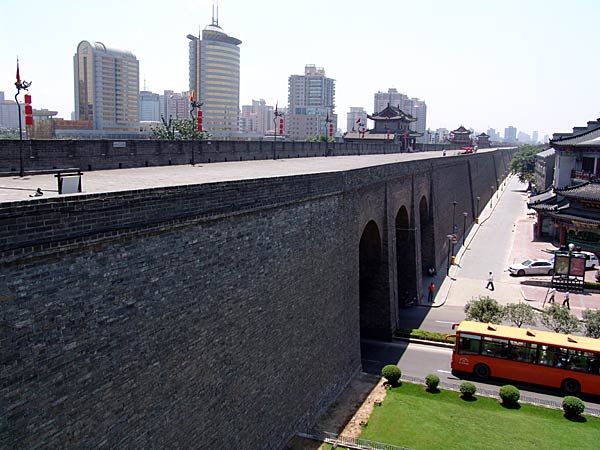
Xian is the only Chinese city that still has a wall completely surrounding
the original section of the city. In all the other cities, the walls have been
torn down. This is the south gate, where Nixon visited in 1974.
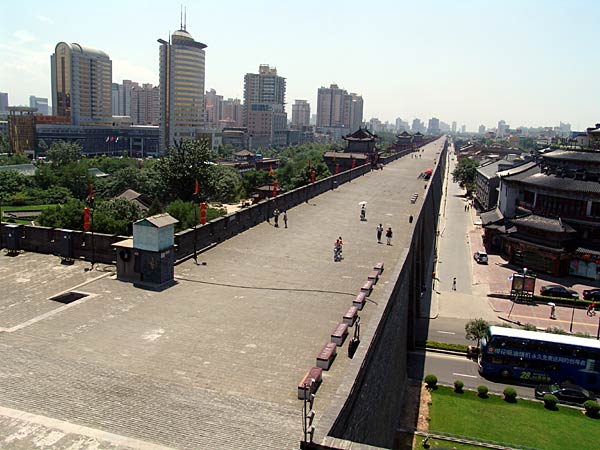
The old part of Xian is to the right, inside the city wall. Outside the city
wall (to the left in this view) the building are much taller and more modern.
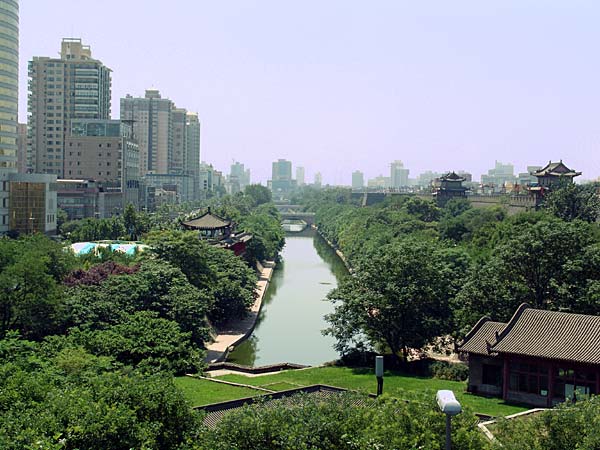
Just outside the city wall is the moat surrounding the city.
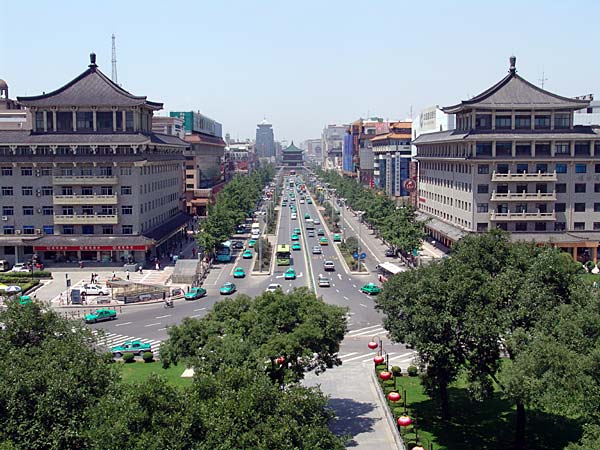
A view looking into the old city. The green- roofed building at the end of
this avenue is the bell tower at the very center of the old city.
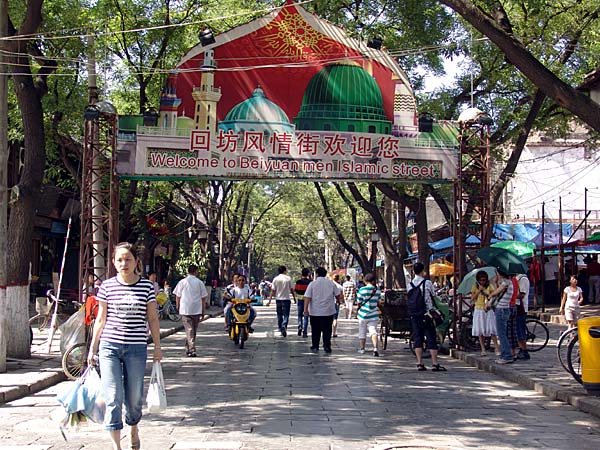
Next we went to the Muslim section of Xian to see a mosque. The bus couldn't
navigate the narrow streets in the Muslim section so we walked the last few
blocks.
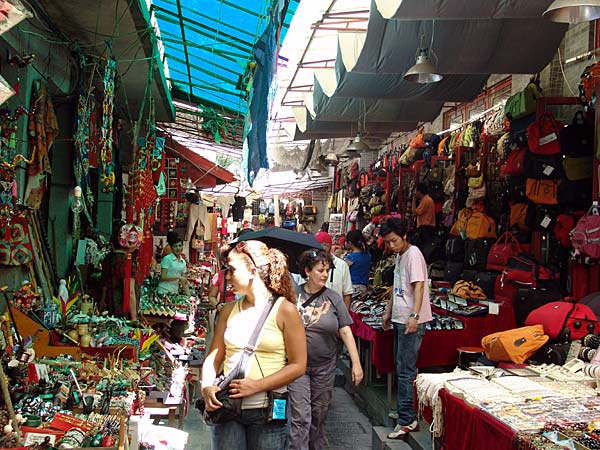
This narrow alley with all the shops with their wares on display reminded me
of Jerusalem. I had not expected to find this in China.
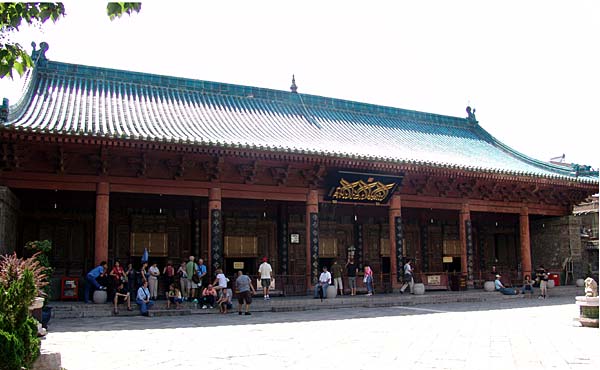
This is the mosque. I find it interesting that the architecture is Chinese, even though the religion practiced inside is Islam. They seem to have adapted to the local culture.